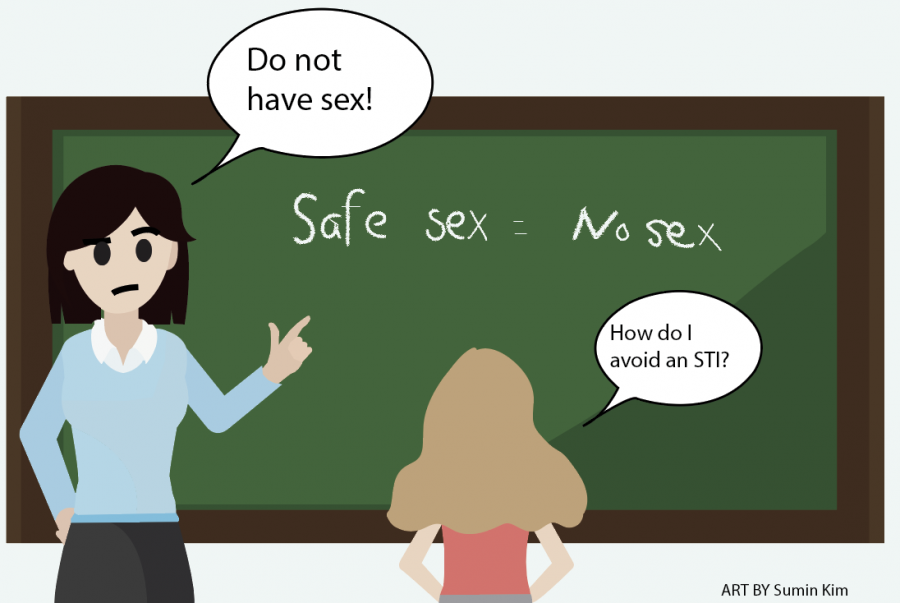Comprehensive sex education will improve teen safety
Above is a depiction of a teacher giving a lesson on safe sex, but leaving out how to actually have safe sex.
November 19, 2019
Teachers lead discussions in math, English, and history but one hot button topic tends to turn a few heads. Sex education has been constantly changing program that differs between every state. AISD has recently proposed new changes for their sex education program which incorporates more comprehensive exploration into sexuality and STI prevention.
The introduction of a new sex ed program could end up being extremely beneficial to teen health. The current curriculum has caused unrealistic expectations for teens everywhere and is lacking the information needed to protect themselves from STIs. A new more in- depth program could end up vastly improving teen health and safety.
Sixty-five percent of eighteen year olds have had intercourse, according to the National Survey of Family Growth, but due to lack of education only 57 percent of sexually active young women and 43 percent of sexually active young men have received formal instruction about birth control methods before having sex for the first time, according to the Journal of Adolescent Health.
Abstinence only, the teaching method required by Texas, has proven to be a harmful method as students often leave the class without any knowledge of contraceptives. If most teens are having sex by the age of 18 but they are leaving sex ed with no knowledge of how to prevent pregnancy, it could explain Texas’s high teen pregnancy rate of 34.6 percent.
Some AISD parents are concerned with the new programs seem to be concerned with the new sexuality aspect of the new sex ed program, stating that it pits students with different views on homosexuality against each other.
In research done by the Human Rights Campaign Foundation, they found that most LGBTQ+ youth have a limited number of adults they trust and often turn to peers or the Internet for their sex education. These sources often have misleading information and extremely sexualized information; so regardless of your personal view teaching this information in school could benefit the children who need it the most.
With this new comprehensive sex ed program most parents are concerned about the sexualization of their children. However, comprehensive sex education, or CSE, have had positive effects with increased contraceptive use, a 30 percent reduction of the frequency of sex, including a return to abstinence, and a 60 percent reduction in unprotected sex.
According to the Advocates For Youth, another concern with comprehensive sex education is not being informed on the topics that are being taught to their kids. There is an option for parents to pull their kids out of the program already offered by AISD.
It’s very easy to see parents concern when sex education can easily be interrupted as a lesson in sexual and crude behavior. However, knowing this it’s apparent this conversation is avoidable when raising a child and no conversation at all can result in unplanned pregnancy and unsafe sex. This information will be something your child will use for the rest of their life so it’s important they get most in-depth education possible.
Editor’s note – On Monday, Oct. 28 the AISD board voted 9-0 to approve the new sex ed program.








